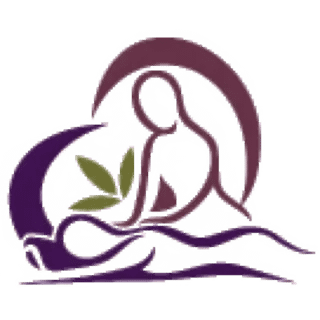
Withdrawal from substances like nicotine, alcohol, or opioids can be physically and emotionally challenging. As the body adjusts, symptoms such as anxiety, aches, nausea, and insomnia can add strain to an already difficult journey. While medical detox and therapy are commonly used to manage withdrawal, holistic treatments, especially massage, can offer relief by addressing both physical discomfort and emotional stress. If you or someone close to you is navigating withdrawal, incorporating holistic therapies can make the journey a little easier by providing comfort and helping the body and mind adjust to a new balance. That’s why, in the rest of this article, we’ll explore holistic approaches to managing withdrawal symptoms, how exactly they work, and all their benefits.
How Massage Helps Manage Withdrawal Symptoms
Massage therapy might not be the first solution you think of, but it can be a powerful ally. During withdrawal, the body is often in a state of tension and stress, which can result in muscle tightness, aches, and general discomfort. Massage works by releasing muscle tension and boosting endorphins, the body’s natural “feel-good” chemicals. This can be especially soothing for someone dealing with heightened sensitivity and irritability.
Types of Massage for Withdrawal
Each type of massage offers unique benefits depending on your specific symptoms:
- Swedish Massage: Known for its gentle, relaxing techniques, Swedish massage can help reduce anxiety and promote better sleep, two common withdrawal struggles.
- Deep Tissue Massage: This massage type targets deeper layers of muscle, which can be beneficial for easing trauma and chronic tension that may have built up over time.
- Reflexology: By applying pressure to specific points on the feet, hands, or ears, reflexology aims to restore balance within the body. This can be helpful if you’re feeling out of sync.
- Shiatsu: A Japanese technique, Shiatsu uses finger pressure on points across the body to release energy blockages. It’s known for relieving fatigue and pain, making it a solid choice for managing withdrawal discomfort.
Adding Aromatherapy to Massage
Aromatherapy is often used in massage sessions to amplify the calming effects. Essential oils like lavender, eucalyptus, and chamomile can provide added relief, especially if anxiety and sleeplessness are at the forefront of your symptoms.
- Lavender: Known for its anxiety-reducing effects, lavender can promote better sleep, which is often disrupted during withdrawal.
- Chamomile: With its soothing, anti-inflammatory qualities, chamomile can help calm nerves and reduce tension.

Working with Your Body’s Natural Healing Rhythms
Holistic therapies recognize that the body has a natural rhythm and capacity to heal, but withdrawal can disrupt these rhythms, leaving you feeling out of sync. The knowledge of how hormones influence addiction is a great first step to helping guide these holistic approaches. Supporting hormonal balance through massage and other holistic practices helps restore a sense of equilibrium, making the recovery process a bit more manageable. While these practices aren’t a cure for withdrawal, they offer gentle, natural support to help the body adjust and recover.
The Benefits of Acupuncture and Acupressure
Acupuncture and acupressure are two other holistic methods that can complement massage therapy. Acupuncture, which involves inserting fine needles into specific points on the body, has long been used in traditional Chinese medicine to balance the body’s energy. For individuals in withdrawal, acupuncture may help manage symptoms like nausea, insomnia, and anxiety.
For those who are needle-averse, acupressure offers a similar approach without the needles. By applying pressure to specific points, acupressure can help alleviate physical discomfort, calm the mind, and reduce cravings. Both methods offer a non-medication option for easing the physical and emotional toll of withdrawal.

Exploring Other Holistic Techniques
In addition to massage and acupuncture, several other holistic practices can provide support during withdrawal. Here are a few worth considering:
Herbal Remedies
Certain herbs, such as valerian root, passionflower, and kava, are known for their calming effects on the nervous system. These can aid with sleep and relaxation, though it’s important to consult a healthcare provider before trying herbal remedies as they may interact with medications.
Prioritizing Nutrition and Hydration
Withdrawal can place significant demands on the body, making good nutrition essential. Nutrient-dense foods and staying hydrated can fuel your recovery. Supplements like magnesium and B vitamins might also support energy and mood balance, though it’s best to consult a healthcare provider for personalized advice.
Yoga and Mindfulness
Yoga combines gentle movement with deep breathing, helping to reduce muscle tension and improve mental clarity. Many people find yoga and mindfulness helpful for managing stress, staying grounded, and encouraging self-compassion.

Creative Outlets and Journaling
Expressing emotions is a critical aspect of recovery. Journaling, painting, music, or any other creative outlet can provide a safe way to process feelings. These activities can also serve as healthy distractions, helping to shift focus away from cravings and onto positive, fulfilling experiences.
Developing a Personalized Holistic Withdrawal Plan
While holistic approaches to managing withdrawal symptoms can be incredibly supportive, they work best when integrated into a broader treatment plan that includes medical and psychological support. A holistic approach to withdrawal acknowledges that the mind, body, and spirit all play a role in recovery. Working with a professional specializing in holistic treatments can help create a balanced plan that aligns with your needs and goals.
Final Thoughts
Healing from withdrawal doesn’t happen overnight. What works well for one person may not be the best solution for another, and it’s okay to try different options to see what feels right for you. Massage and other holistic therapies aren’t cures, but they’re tools to make the journey smoother and more comfortable. Whether you’re going through this process yourself or supporting someone who is, consider these holistic approaches to managing withdrawal symptoms as small but meaningful companions on the path to recovery. Every bit of comfort and care counts, and you deserve support at every stage of your journey.


